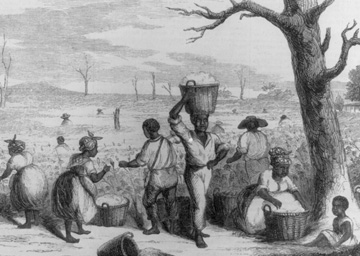Salih Bilali of Massina circa 1765 — circa mid-1850s

Salih Bilali was an enslaved African Muslim man who was born in Massina in modern Mali in the 1770s and lived much of his life in coastal Georgia in the United States. Salih Bilali was an ethnic Fula, like many other enslaved Muslims in the Americas. After being captured into slavery when he was around twelve years old, Salih Bilali lived and labored in the Bahamas. From there, he was purchased by the Couper family of St. Simons Island, Georgia. There he eventually rose to an important position in the plantation hierarchy.
Salih Bilali was remembered as a faithful and dedicated Muslim. His owner’s son remembered him as “the most religious man that he had ever known,” and claimed that his final words were, “Allah is God and Mohammed his prophet.” The Couper family spoke highly of Salih Bilali. While Salih Bilali did not write an autobiography, his owner wrote much about his life and experiences. Because of his intelligence and judgment, the Coupers made him their head driver in 1816; a position which put him in charge of more than four hundred enslaved workers. Salih Bilali often managed the plantation on his own for long periods of time in the owners’ absence.
As a young man, Salih Bilali learned to read (but not write) Arabic as part of his Islamic schooling in Massina. In Georgia, he continued to adhere to his faith. Despite the challenges of the plantation, he kept and read a copy of the Qur’an, prayed daily, refused alcohol, and observed Ramadan and its fasts. Salih Bilali was fortunate to be able to maintain his faith and its demanding practices without interference from his owner. He was also fortunate to live in an area in coastal Georgia that had a significant number of other enslaved Muslims with whom he could pray and interact.







